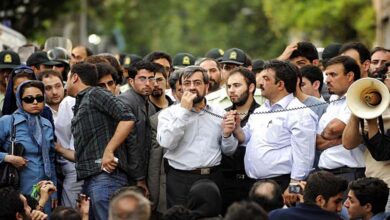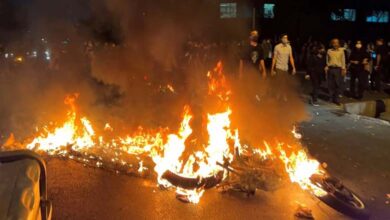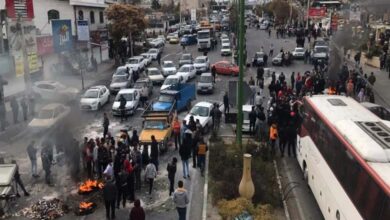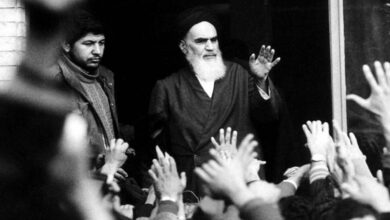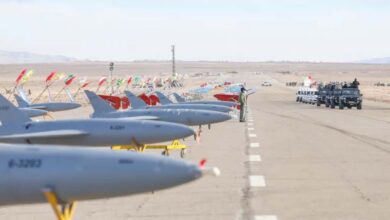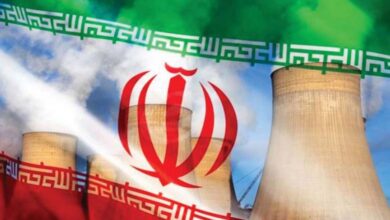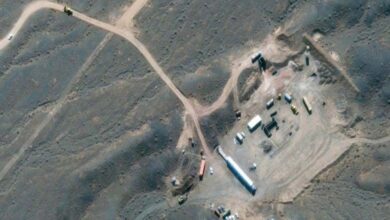SDF Accuses Iran of Fueling ‘Tribal Uprising’ in Deir ez-Zor
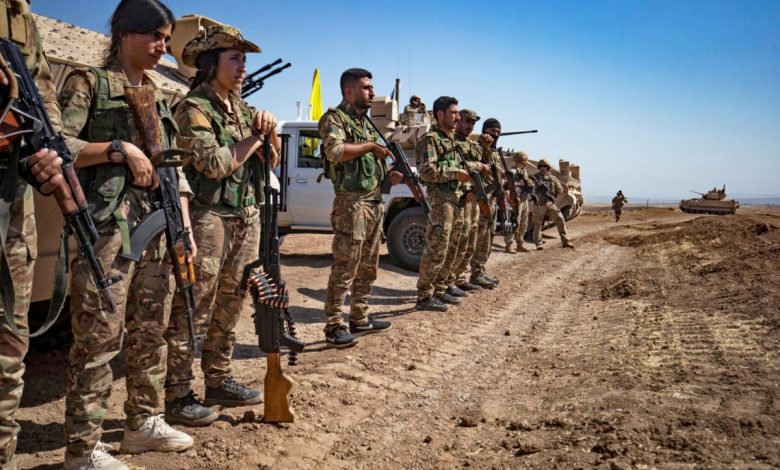
The U.S. move to defuse the conflict between the Syrian Democratic Forces and Arab tribes indicates concerns about the expansion of Iranian militias, which have established ties with some tribal components, luring fighters through financial incentives
U.S. officials and others from the Syrian Democratic Forces (SDF) have accused Iranian militias in Syria of exploiting the differences between the SDF and Arab tribes to gain a foothold in the oil-rich region. Meanwhile, local sources assert that Turkey also plays a role in inflaming the situation. pushing it to the brink by opening a path for tribal fighters to join the ongoing fighting between former allies.
The U.S. military presence in areas controlled by the Syrian Democratic Forces has hindered the expansion of militias supported by Russia and Iran. which have gained a foothold in areas west of the Euphrates River. Officials from the Syrian Democratic Forces say they seek to expand their influence.taking advantage of the explosive situation between the two parties. which the United States is trying to contain.
Western reports and sources from Deir ez-Zor suggest that Iran is accelerating its steps to expand in areas of American Kurdish influence or around them. Iran has intensified its recruitment program of Arab tribes in the region through what are known as polarization centers. using significant financial incentives to disrupt American presence.
Iran and Turkey share objectives in the areas west of the Euphrates River to weaken the Kurdish self-administration .and reduce its influence. Ankara is pursuing a political path aimed at normalizing relations with the Syrian regime after years of rupture and tension. This deal could have consequences for the Kurdish component in northern Syria. as well as for militias and Islamic Syrian groups that have enjoyed significant Turkish support.
With the expansion of clashes between the SDF and Arab tribes in the Deir ez-Zor countryside, Iranian militias found an opportunity to expand their influence and establish connections with some tribal components. Local sources say that these militias exploited the deteriorating security situation to increase tribal incitement against American presence in the region. especially with accusations that the Kurdish administration discriminates against. and marginalizes Arab tribes, depriving them of the oil revolution in the area.
After establishing its influence in eastern Deir ez-Zor, Iranian militias found a favorable opportunity to enter the cities of Kameshli and Hasakah. amid regional and international conflicts between Russia and the United States on one side. and the SDF and Turkey on the other.
A spokesperson for the Syrian Democratic Forces accused Iran and the Syrian government of sending what he described as “tribal militias” to create chaos in northeastern Syria, where most of the remaining U.S. forces in the country.numbering close to 900. are stationed.
Arab tribal leaders say they have been deprived of their oil wealth after Kurdish-led forces took control of Syria’s largest oil wells following the departure of the Islamic State. They also complain of neglect in their areas compared to the focus on Kurdish-majority areas. Sheikh Mahmoud al-Jarallah, one of the tribal leaders in the region.says they want to remove Kurdish forces from all of Deir ez-Zor and hand over the region’s administration to Arab-origin residents.
Leadership of the Kurdish-dominated SDF denies discrimination against Arabs, who make up the majority of the population. They accuse Islamic State remnants of intimidating local residents. and hindering the region’s development. Western diplomats say Washington is advocating for a greater role for Arab residents in managing their affairs in the areas controlled by the Syrian Democratic Forces.
The Syrian Democratic Forces Imposes Curfew in Deir ez-Zor as Battles Escalate with Tribes
U.S. officials and security sources say that two senior U.S. officials visited the oil-rich Deir ez-Zor province in eastern Syria on Sunday in an attempt to defuse a tribal uprising against Kurdish rule that threatens to destabilize northern Syria.
The tribal uprising against the rule of the Kurdish People’s Protection Units, which governs the region, has led to clashes resulting in the deaths and injuries of more than 150 people. These units form the backbone of the Syrian Democratic Forces. supported by the United States. while this uprising represents the biggest challenge to their rule since they succeeded in driving the Islamic State from a large expanse of territory in northern and eastern Syria in 2019.
The U.S. Department of State said that Ethan Goldrich, Deputy Assistant Secretary of State for Syria, and Major General Joel B. Vowell, Commander of the international coalition against the Islamic State. met with Arab tribal leaders and leaders of the Syrian Democratic Forces. They agreed to “address local grievances” and “de-escalate violence as quickly as possible and avoid casualties.”
It is not yet clear whether U.S. efforts have succeeded in defusing the crisis, as armed clashes continue with less intensity than in recent days.
The arrest of a dissident Arab leader by the Syrian Democratic Forces last month quickly led to disturbances that swept through several towns from Basira to Shuhayl. in a strategic oil belt in the Arab tribal region east of the Euphrates River.
Initially, Arab tribal fighters expelled Kurdish-led forces from several major towns. but the Syrian Democratic Forces began to regain control of the situation.


